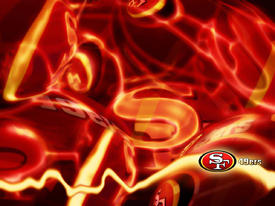How do you eat a lot of heathly calories??

sirabe
Posts: 294 Member
Ok, I have decided to start eating my exercising caloires. But I am finding it difficult to get that much food in my body with out eating bad.
How in the world can I eat healthy foods and then eat my exercise calories as well??
I tried this today and I had to force my food down as to get as close as I did.
I do not want to be eating this junk just to get my calories up.
I'm starting t think that I should just go back to intuitive eating again.
I am just soo confused.
How in the world can I eat healthy foods and then eat my exercise calories as well??
I tried this today and I had to force my food down as to get as close as I did.
I do not want to be eating this junk just to get my calories up.
I'm starting t think that I should just go back to intuitive eating again.
I am just soo confused.
0
Replies
-
peanut butter
2 spoons = 200 calories BOOM0 -
MMMMMM PEANUT BUTTER!!!0
-
nuts and peanut butter0
-
Nuts,seeds. ,healthy grains
Healthy fats
Avocados0 -
Nut butters, nuts, avocados, bananas, olive oil, chia seeds, quinoa, sweet potatoes, oatmeal, dates. (I like eating dates stuffed with a little peanut butter after cardio.) Depending on exactly what you consider healthy, and what sort of macro profile you're going for these may or may not work, but they're ideas.
At the same time, if intuitive eating works for you (i.e. you stay within a reasonable number of calories)0 -
Cheese Of all cheeses low sodium Parmesan cheese provides the most protein with 41.6 grams per 100 gram serving. It is followed by regular whole Parmesan at 35.8 grams of protein per 100 grams. That is 10 grams of protein per ounce, and 3.6 grams per cubic inch. Other cheeses like Romano, Mozzarella, and Swiss provide around 28-30 grams of protein per 100 gram serving. Softer cream cheeses, or spreadable cheeses, provide the least protein with only 16 grams per 100 gram serving. Click to see complete nutrition facts. Cheeses Highest in Protein.
#2: Mature (Large) Beans The older, larger, and more mature a bean gets the more protein it carries. Mature roasted soybeans (Edamame) have the most providing 39.6 grams of protein per 100 gram serving, or 68 grams per cup. They are followed by mature Lupin beans which provide 15.6 grams per 100 gram serving. That is 25.8 grams per cup. Click to see complete nutrition facts. Beans and legumes highest in protein.
#3: Lean Veal and Beef To get the most protein out of meat, it is best to choose lean cuts. Specifically the top round of veal or beef provides around 36 grams of protein per 100 gram serving, or 93 grams per pound, and 31 grams in a 3 ounce serving. Click to see complete nutrition facts.
#4: Roasted Pumpkin, Squash, and Watermelon Seeds A popular food in the Middle East and East Asia pumpkin and squash seeds provide 33 grams of protein per 100g serving, that is 74.8 grams per cup and 9.2 grams per ounce. Watermelon seeds provide slightly less at 28 grams of protein per 100 gram serving. If you can't find these seeds in your local supermarket you will surely find them in Middle Eastern or East Asian specialty stores. Alternatively, you can also save any pumpkin, squash, and watermelon seeds you have and roast them in your oven. The seeds are typically consumed by cracking the outer shell and eating the seed inside. Click to see complete nutrition facts. Seeds and Nuts with the Fewest Calories.
#5: Lean Meats (Chicken, Lamb, Pork, Turkey) Most lean meats provide around 30 grams of protein (30%) in a 100 gram serving. Chicken broilers have the most with 32.8 grams of protein per 100 gram serving, which is 21 grams per pound, and 27 grams in half a chicken breast. Pork loin and chops have 30 grams per 100 gram serving or 19.2 grams of protein per chop. Click to see complete nutrition facts.
#6: Fish (Tuna, Anchovies, Salmon) Fish are becoming more popular as knowledge spreads on the value of their fats and oils. As for protein Yellowfin Tuna provides the most with 30 grams per 100 gram serving, or about 8 grams per ounce. It is followed by Anchovies(29g), Salmon(27g), Halibut(27g), Snapper(26g), and Tilapia(26g). Click to see complete nutrition facts.
#7: Fish Eggs (Roe and Caviar) Caviar and fish eggs are most often eaten as a garnish or spread. A sampling of fish roe (eggs) from a variety of species found they provide 28.6 grams of protein in a 100 gram serving. That is 8 grams of protein per ounce. Caviar will provide 24 grams of protein in a 100 gram serving or 6.9 grams per ounce. Chicken eggs, by comparison, only offer 13.6 grams of protein in a 100 gram serving, or 6.3 grams of protein per egg. Click to see complete nutrition facts.
#8: Yeast Extract Spread (aka: Marmite) Yeast extract spreads are popular in Britain and Europe, and have started to gain popularity in the U.S. A good vegan source of vitamin B12, the spread also packs a lot of protein. One hundred grams provides 27.8 grams of protein, that is 1.7 grams per teaspoon. Click to see complete nutrition facts.
#9: Lobster and Crab Crab and lobster are most commonly served baked, steamed, or in bisque. A 100g serving of lobster contains 26.4 grams of protein, or 43 grams per lobster. Crab provides a little less with 19.4 grams per 100 gram serving. Click to see complete nutrition facts.
#10: Lentils, Pulses, and Peanuts Lentils, pulses, and peanuts (a legume) are a great vegan source of protein. Peanuts provide the most protein with 23.7 grams per 100 gram serving or 6.6 grams per ounce, 0.2 grams per peanut. Lentils provide the most protein when consumed raw at 25.8 grams per 100 gram serving, and 9 grams per 100g serving cooked (17.9 grams of protein per cup). Click0 -
You don't necessarily have to eat back calories in a healthy way...if you're done exercise for the day, the effect of "crappy" food isn't going to be that extreme for the rest of the day. A lot of my exercise calories end up going to sweets because I can't refuse them...they don't hurt if they're within limits and you stay under calorie goal0
-
You don't necessarily have to eat back calories in a healthy way...if you're done exercise for the day, the effect of "crappy" food isn't going to be that extreme for the rest of the day. A lot of my exercise calories end up going to sweets because I can't refuse them...they don't hurt if they're within limits and you stay under calorie goal
bad idea0 -
You don't necessarily have to eat back calories in a healthy way...if you're done exercise for the day, the effect of "crappy" food isn't going to be that extreme for the rest of the day. A lot of my exercise calories end up going to sweets because I can't refuse them...they don't hurt if they're within limits and you stay under calorie goal
Wrong. Just because you burned off the calories doesn't mean you're not hanging onto too many carbs, or saturated fats, or sodium. This is bad bad advice.
I would not apply this advise to daily eating. That being said, if you can have a "cheat day" where you eat unhealthy food (like greasy pizza) but still stay in your calorie range then you're better off satisfying the craving then losing control and having a big bender.0 -
Eat often, have a lot of variety available, and plan ahead.
If you need meal ideas, take a look at some diaries on here that are public from people that have been maintaining for 6+ months and doing so in a healthy and balanced way.
If you need specific ideas, let me know and I'll do my best :bigsmile: Holiday snacking is kicking my *kitten* right now, but otherwise I'm usually pretty damn good at eating at least 1600-2000 cals a day in mostly healthy, nutritious whole foods.
Good luck!0 -
Ok, I have decided to start eating my exercising caloires. But I am finding it difficult to get that much food in my body with out eating bad.
How in the world can I eat healthy foods and then eat my exercise calories as well??
I tried this today and I had to force my food down as to get as close as I did.
I do not want to be eating this junk just to get my calories up.
I'm starting t think that I should just go back to intuitive eating again.
I am just soo confused.
What exactly is "healthy" food according to you?0 -
You don't necessarily have to eat back calories in a healthy way...if you're done exercise for the day, the effect of "crappy" food isn't going to be that extreme for the rest of the day. A lot of my exercise calories end up going to sweets because I can't refuse them...they don't hurt if they're within limits and you stay under calorie goal
Wrong. Just because you burned off the calories doesn't mean you're not hanging onto too many carbs, or saturated fats, or sodium. This is bad bad advice.
I would not apply this advise to daily eating. That being said, if you can have a "cheat day" where you eat unhealthy food (like greasy pizza) but still stay in your calorie range then you're better off satisfying the craving then losing control and having a big bender.
what defines too many carbs, sat fats or sodium, besides an amount that is hindering your ability to get in adequate protein?0 -
Nuts, peanut butter, (whole) eggs, and avocado! All healthy, all high in cals.0
-
what defines too many carbs, sat fats or sodium, besides an amount that is hindering your ability to get in adequate protein?
MFP tabulates all the recommended levels for these for you (presumably based off FDA guidelines.) and you can track any or all of them. Too many carbs can hinder weight loss, too much sodium causes water retention, high blood pressure etc. Everything in moderation!0 -
Coconut butter, coconut oil, avocado, walnuts, almonds, meats, full fat cheeses, coconut milk, grass fed butter. Mmmm fat.0
-
what defines too many carbs, sat fats or sodium, besides an amount that is hindering your ability to get in adequate protein?
MFP tabulates all the recommended levels for these for you (presumably based off FDA guidelines.) and you can track any or all of them. Too many carbs can hinder weight loss, too much sodium causes water retention, high blood pressure etc. Everything in moderation!
how do "too many carbs" hinder weight loss assuming you are in a caloric deficit? what does water retention have to do with fat loss? and how many sat fats is too much, keeping in mind they play a very important role in the human body
what is your take on discretionary kcal allowance?0 -
Like some of the others have suggested, nuts, beans, peanut butter, and healthy fats. Seeds are good too, and if you make your own smoothie, with fresh or frozen fruit, protein powder, milk/yogurt/milk substitute, you can pack in some serious calories quickly, in a healthy way, without getting overly filled.0
-
I'm starting t think that I should just go back to intuitive eating again.
I think that is a fantastic idea!0 -
MFP is actually recommending protein too low. Too many carbs don't hinder weight loss, inconsistent calorie deficit does. Too much sodium can cause water retention IF you don't drink enough and get in potassium to counter it and it doesn't cause high blood pressure in everyone.MFP tabulates all the recommended levels for these for you (presumably based off FDA guidelines.) and you can track any or all of them. Too many carbs can hinder weight loss, too much sodium causes water retention, high blood pressure etc. Everything in moderation!
Although eating "healthier" options are probably better to eat back for exercise calories, there's no evidence to show that eating a cheeseburger would hinder it if you're in calorie deficit.
A.C.E. Certified Personal Trainer
IDEA Fitness member
Kickboxing Certified Instructor
Been in fitness for 28+ years and have studied kinesiology and nutrition0 -
MFP is actually recommending protein too low. Too many carbs don't hinder weight loss, inconsistent calorie deficit does. Too much sodium can cause water retention IF you don't drink enough and get in potassium to counter it and it doesn't cause high blood pressure in everyone.MFP tabulates all the recommended levels for these for you (presumably based off FDA guidelines.) and you can track any or all of them. Too many carbs can hinder weight loss, too much sodium causes water retention, high blood pressure etc. Everything in moderation!
Although eating "healthier" options are probably better to eat back for exercise calories, there's no evidence to show that eating a cheeseburger would hinder it if you're in calorie deficit.
A.C.E. Certified Personal Trainer
IDEA Fitness member
Kickboxing Certified Instructor
Been in fitness for 28+ years and have studied kinesiology and nutrition
here we go again0 -
I seriously thought that said IKEA team member when I first read it :laugh:
MFP is actually recommending protein too low. Too many carbs don't hinder weight loss, inconsistent calorie deficit does. Too much sodium can cause water retention IF you don't drink enough and get in potassium to counter it and it doesn't cause high blood pressure in everyone.MFP tabulates all the recommended levels for these for you (presumably based off FDA guidelines.) and you can track any or all of them. Too many carbs can hinder weight loss, too much sodium causes water retention, high blood pressure etc. Everything in moderation!
Although eating "healthier" options are probably better to eat back for exercise calories, there's no evidence to show that eating a cheeseburger would hinder it if you're in calorie deficit.
A.C.E. Certified Personal Trainer
IDEA Fitness member
Kickboxing Certified Instructor
Been in fitness for 28+ years and have studied kinesiology and nutrition
here we go again0 -
What I do is eat every 2 hours.....small meals.....with a protein, a carb and a good fat. So I have an egg with avocado and a fruit @ say, 8 am, then @ 10 I have a protein shake, 12 almonds and raspberries, @ 12 I eat 1-2 oz of chicken breast with green beans or asparagus (I spray olive oil and sprinkle garlic powder on the veggies, yummy!), then @ 2 I'll have carrots with hummus, @ 4 I have another small meal of perhaps 1 oz of steak with veggies, I work out @ 5 and after my workout, I have another shake with either a banana or apple, at dinner I eat more protein with veggies. Sounds like alot of food but I've got it down to about 1600-1700 calories a day and I've lost 8 lbs in 30 days! Hope this helps!0
-
how do "too many carbs" hinder weight loss assuming you are in a caloric deficit? what does water retention have to do with fat loss? and how many sat fats is too much, keeping in mind they play a very important role in the human body
what is your take on discretionary kcal allowance?
I just try to stay in line with FDA recommendations. No water retention isn't really an issue, and if you're exercising a lot and drinking enough it's not an issue, but high blood pressure is a concern for some people! And lets face it, people are trying to move the scales, if you're weight is fluctuating alot from water then it's harder to see your real progress.
I do think you need to treat yourself, all alfalfa sprouts and rice is no way to live, I just caution against including unhealthy food in your every day eating habits because it's well... unhealthy.
As far as carbs and weight loss, I read recently that complex carbs (think processed, doughnuts/soda) get turned to sugar and can hurt your weight loss. I would think that if you are exercising it would mitigate that effect, as you're body is going to be burning whatever it can find. I'm no nutrition guru, just what I've read.
To sum up,I figure if I aim for the FDA numbers, I'm doing pretty good.0 -
As far as carbs and weight loss, I read recently that complex carbs (think processed, doughnuts/soda) get turned to sugar and can hurt your weight loss. I would think that if you are exercising it would mitigate that effect, as you're body is going to be burning whatever it can find. I'm no nutrition guru, just what I've read.
To sum up,I figure if I aim for the FDA numbers, I'm doing pretty good.
Did you mean to write "simple carbs" rather than complex carbs? I thought complex carbs were the healthier carbs, like some vegetables, whole grains, etc. Just clarifying 0
0 -
It's really not hard to eat enough if you stay away from "diet" foods. Eat whole eggs, higher fat dairy (cheese, 2% milk or yogurt), red meat, nuts, bananas, fruit in general, full fat salad dressing. And yes, having "treat" or "junk" foods isn't horrible either as long as you are hitting your macro nutrient minimums, staying under your calories and eating mostly "healthy" foods.0
-
Did you mean to write "simple carbs" rather than complex carbs? I thought complex carbs were the healthier carbs, like some vegetables, whole grains, etc. Just clarifying
yes thanks 0
0 -
I do think you need to treat yourself, all alfalfa sprouts and rice is no way to live, I just caution against including unhealthy food in your every day eating habits because it's well... unhealthy.
how is it unhealthy?, remember context is keyAs far as carbs and weight loss, I read recently that complex carbs (think processed, doughnuts/soda) get turned to sugar and can hurt your weight loss. I would think that if you are exercising it would mitigate that effect, as you're body is going to be burning whatever it can find. I'm no nutrition guru, just what I've read.
A) you're thinking of simple carbs all carbs turn to sugar
all carbs turn to sugar
and you failed to answer just how they hurt weight loss0 -
Beeble....dont worry and dont bother.....this thread hasnow been hijacked by the I know more than you guys
eat healthy and live long0 -
Ive read a lot.. and experimented a lot... eating "healthy" (whether that be low fat, low carb, low GI, natural food, organic food, whatever you define it) is more mental than physiological. To be honest whatever works for you and gets the fat stores moving (has to be caloric deficit) you should stick to. Whether it is a baked chicken breast + olive oil + a salad or half a big mac, whatever makes you happy!0
-
You don't necessarily have to eat back calories in a healthy way...if you're done exercise for the day, the effect of "crappy" food isn't going to be that extreme for the rest of the day. A lot of my exercise calories end up going to sweets because I can't refuse them...they don't hurt if they're within limits and you stay under calorie goal
I'd like to elaborate on the above because it seems like this is causing some issues. This is my opinion of things and I'll try to be concise about it.
Individual food items, OUTSIDE of the context of the entire diet and without considering an individuals intolerances (if any), do not make you fat and are not unhealthy, aside from maybe artificial trans-fats.
You cannot unequivocally state that an orange is always healthier than a scoop of ice cream if you don't know the context of the diet as a whole. Someone who is acutely fat deficient with adequate vitamin C may benefit more from the scoop of ice cream.
Now absurd examples aside: Selecting a diet of "mostly" nutrient rich foods and "some" junk food, in the presence of adequate micronutrients and a caloric deficit with pro/fat sufficiency, is perfectly fine and not detrimental. In fact, I would argue that this is BETTER than a diet consisting of what people tend to think of as "diet" food for the simple fact that it's more palatable (for most people) and more likely to last long term.
No, you probably shouldn't eat snickers bars all day long and expect good results.
But if you execute the plan correctly and you can "fit" a scoop of ice cream or some potato chips along side your healthy foods, then I would recommend it.0
This discussion has been closed.
Categories
- All Categories
- 1.4M Health, Wellness and Goals
- 394.8K Introduce Yourself
- 44K Getting Started
- 260.6K Health and Weight Loss
- 176.2K Food and Nutrition
- 47.5K Recipes
- 232.7K Fitness and Exercise
- 444 Sleep, Mindfulness and Overall Wellness
- 6.5K Goal: Maintaining Weight
- 8.6K Goal: Gaining Weight and Body Building
- 153.2K Motivation and Support
- 8.2K Challenges
- 1.3K Debate Club
- 96.4K Chit-Chat
- 2.5K Fun and Games
- 4.1K MyFitnessPal Information
- 16 News and Announcements
- 1.3K Feature Suggestions and Ideas
- 2.8K MyFitnessPal Tech Support Questions













